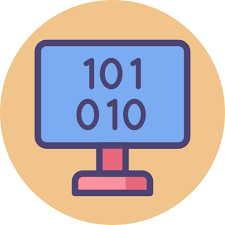
Data Representation and Number Systems Quizzes
Data representation and number systems define how information is encoded in computers, using formats like binary, octal, decimal, and hexadecimal to represent and process data.
Want to create your own quiz?
Enter a topic to auto-generate a quiz instantly.
Introduction to Basic Probability Concepts
Test your understanding of fundamental probability concepts with this easy-level quiz. Designed for beginners, this quiz covers probability rules, terminology, and simple scenarios relevant to basic probability calculation and interpretation.
Modular Arithmetic and Number Systems Essentials Quiz
Explore foundational concepts in modular arithmetic and number systems with this beginner-friendly quiz. Sharpen your problem-solving skills across remainders, congruence, binary, hexadecimal, and applications of arithmetic modulo operations.
Mojibake & Data Corruption: Common Encoding Pitfalls Quiz
Explore key challenges in text encoding, including mojibake and data corruption. This quiz helps you identify common pitfalls, causes, and solutions related to character encoding errors and misinterpretation in digital data.
Normalization Concepts in Floating-Point Numbers
Explore foundational concepts of normalization in floating-point numbers, including format structure, exponent handling, and practical examples. Ideal for students and enthusiasts interested in computer arithmetic and accurate numerical representation.
Numeric Representation Pitfalls: Overflow, Precision & Two’s Complement
Test your knowledge of common pitfalls in numeric representation, including two’s complement notation, integer overflow, and floating-point precision errors. This quiz is designed to help you identify and avoid mistakes when working with different numeric systems in programming.
Numeric Representation Pitfalls: Understanding Common Errors
Test your knowledge of numeric representation pitfalls such as two’s complement, integer overflow, and floating-point precision issues. This quiz covers key concepts and common mistakes in handling binary numbers, overflow bugs, and floating-point comparison errors to help you avoid calculation problems.
Overflow and Underflow in Number Systems Quiz
Explore the key concepts of overflow and underflow in binary and decimal number systems with this engaging quiz. Understand the causes, effects, and detection of arithmetic overflow and underflow in computing through practical examples and scenarios.
Parity Bits and Error Detection Essentials Quiz
Deepen your understanding of parity bits and basic error detection techniques with this quiz designed to reinforce foundational concepts. Explore key principles, methods, and scenarios relevant to error detection in digital communications and computer systems.
Signed and Unsigned Numbers: Representation Essentials Quiz
Explore how signed and unsigned numbers are represented in digital systems, distinguishing key differences, storage formats, value ranges, and common pitfalls. This quiz helps clarify binary representation and interpretation for both signed and unsigned integer data types.
Two’s Complement Deep Dive Quiz
Explore the fundamentals of two’s complement representation with this quiz designed to clarify the way negative integers are stored, binary addition, and conversion techniques. Strengthen your understanding of two’s complement notation, binary arithmetic, and how computers represent signed numbers.
Unicode and String Encoding: Essentials and Pitfalls
Test your fundamental knowledge of Unicode, ASCII, UTF-8, UTF-16, string length measurement, slicing, and the differences between bytes and characters. This quiz covers practical issues and concepts anyone working with string encoding should understand to avoid common mistakes.
Unicode Encoding Standards: UTF-8, UTF-16, and UTF-32 Fundamentals Quiz
Explore essential Unicode encoding standards with this quiz focused on UTF-8, UTF-16, and UTF-32. Assess your understanding of Unicode concepts, encoding differences, storage requirements, and compatibility aspects relevant to digital text processing.

